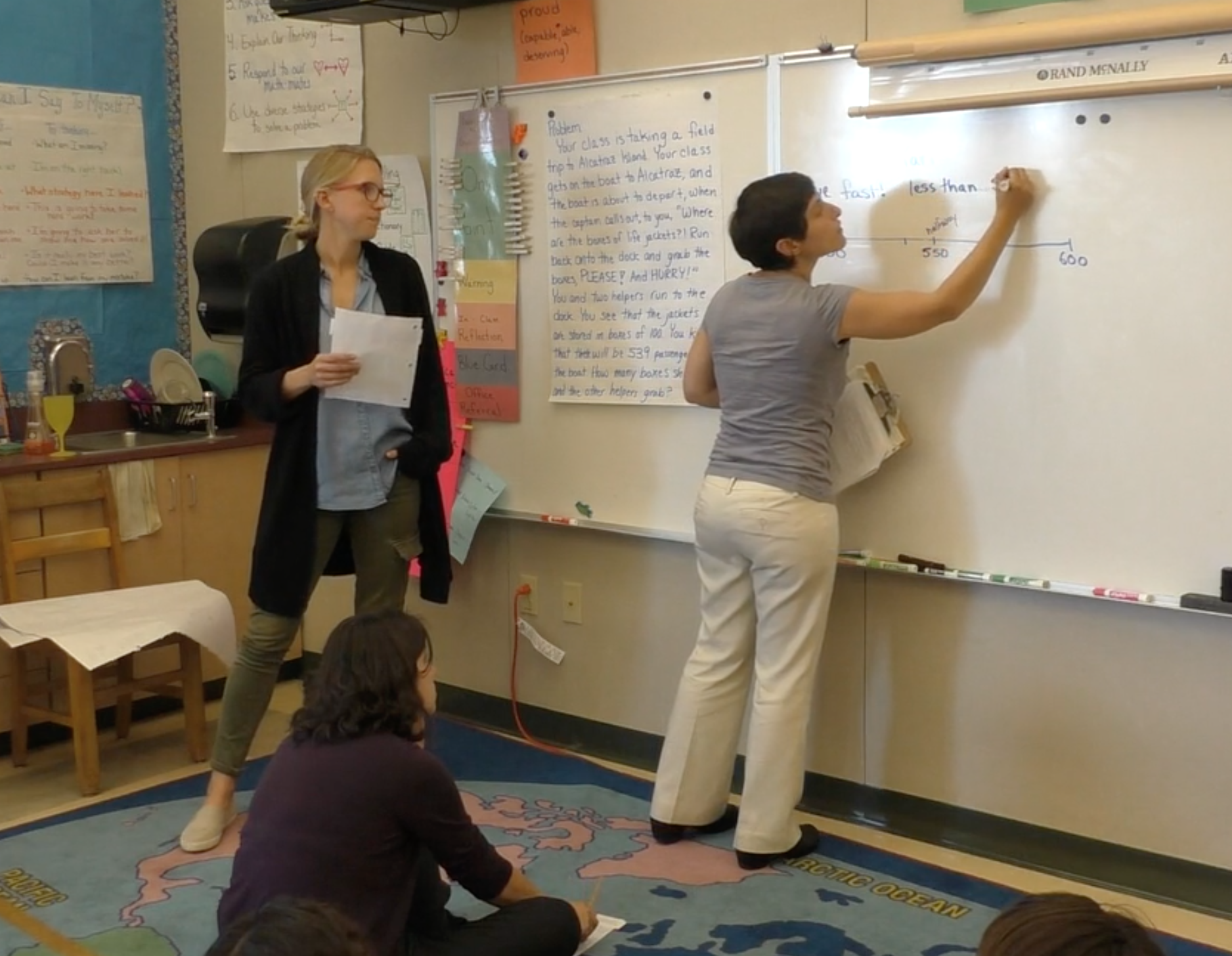A
Try the Lesson Out
Having a “dress rehearsal” of the lesson can reveal fixable problems or gaps in the lesson and help team members experience the lesson from the student point of view.
The Benefits of a Run-Through
In a “mock-up lesson” just prior to the research lesson, team members take the role of students, and the instructor teaches, focusing especially on challenging elements of the lesson, such as
- Specific teacher questions during each phase of the lesson
- Eliciting and sharing “student” ideas
- Using the board and other public spaces to support students’ learning from one another
- The end-of-lesson summary, using actual responses from the “students” (teammates)
The mock-up lesson allows team members to notice how the lesson feels from a student’s point of view. Team members can be assigned to produce each anticipated type of student thinking, so that the instructor can rehearse the specific questions that will be asked. Team members can also jot down whatever they noticed as “students”–for example, ambiguous questions, the difficulty of writing legibly while seated on the rug, the need for more partner chats, or the disconnect between their idea and the lesson summary.
Ideally, your team will already have clear lesson goals when you go into the mock-up lesson. The mock-up lesson should help you hone the questions and moves that will help you reach those goals. Your team may also find the mock-up lesson clarifies lesson goals.
The Resources section provides examples of mock-up lessons on video.
Plan Your Board Organization
A well-organized board makes key ideas visible throughout a lesson, so that students can:
- Revisit each element of the lesson as needed—the problem or questions being discussed, key concepts or illustration, classmates’ analyses or solution strategies, etc.
- See the “story” of the lesson, from the initial problem or question, through the analysis and insights developed by the class, to the summary of what they learned
- Compare different concepts or strategies and consider how their own thinking relates
- Experience an organized model for their own note-taking and reflection
- Become “meta-cognitive” as they see how new ideas are developed in the subject area
When you conduct your mock-up lesson, take a photo of your board work (if applicable) and add this as your Board Plan (#11 of the Teaching-Learning Plan).


